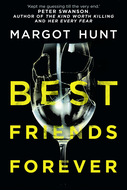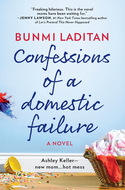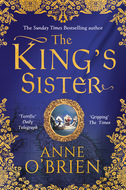Kitap dosya olarak indirilemez ancak uygulamamız üzerinden veya online olarak web sitemizden okunabilir.
Kitabı oku: «Ava's Gift»
Following on from the critically acclaimed The Returned comes another blockbuster release from New York Times bestselling author Jason Mott.
Perfect for fans of Eowyn Ivey and Erin Morgenstern, this is a spellbinding tale of love, sacrifice and the power of miracles.
A freak accident reveals a secret that thirteen-year-old Ava has been terrified to share.
Ava has a unique gift: she can heal others of their physical ailments. Now the whole world knows and people from all over the globe want to glimpse the wonder of a miracle.
But Ava’s ability comes at a cost and, as she grows weaker with each healing, she finds herself having to decide just how much she’s willing to sacrifice in order to save the ones she loves most.
Full of intrigue and suspense, Ava’s Gift captures the imagination and will have readers enchanted until the very last page.
Also by Jason Mott
THE RETURNED
Ava’s Gift
Jason Mott
To those who pull us through the impossible.
Contents
Cover
Back Cover Text
Booklist
Title Page
Dedication
One
Interlude I
Two
Interlude II
Three
Interlude III
Four
Interlude IV
Five
Interlude V
Six
Interlude VI
Seven
Interlude VII
Eight
Interlude VIII
Nine
Interlude IX
Ten
Interlude X
Extract
ACKNOWLEDGMENTS
Copyright
ONE
FOR ONCE, DEATH took pity.
That is what the people of Stone Temple would say in the time that came after. It was late autumn and the townspeople were preparing for an early winter. The clouds were heavy in the days before the Fall Festival and that always meant hard, cold months ahead. The festival was their way of saying goodbye to short sleeves and tourist season, cicadas and apple brandy on the front porch at sunset.
The highlight would be Matt Cooper, who would come and entertain them with stunts in his airplane. He was one of only two people to venture out from Stone Temple and return with the world knowing his name. He had become a pilot for a traveling air show troop and, when he could, he came to town with his red-white-and-blue-painted biplane to show the people of this small town that he had not forgotten them. He would land it in the open field where the town held festivals and barbecues, and the townspeople loved him not only for his stunts, but because of how he had defied the fates of so many others who left the town, were broken by the world and returned with their hats in hand.
So on the day of the festival, the Ferris wheel was set up along with the tents for games and vendors and places where sweet foods could be cooked and there was a competition for blue-ribbon vegetables and a competition for the best gingerbread recipe. The entire town came out and the air was sweet and thick for miles when the day got late and Matt Cooper finally climbed into his airplane and buzzed above the earth. The townspeople took seats in makeshift bleachers and the old concrete grain silo was converted into an announcing booth. A pair of men sat atop it calling out all of Matt Cooper’s tricks and techniques. They frequently remarked on both the inherent danger and, whenever they could, on the fact that he was a native of Stone Temple who had “done good.” Folks craned their necks and held their breaths.
The plane ascended—straight up, the propeller chopping air, the engine buzzing, the sound of it softening as it stretched the rubber band of gravity, lifting into the heavens. Mountains could be stacked between man and earth just then. Finally, the crowd could hold their breaths no longer. They exhaled and, even though they knew full well that Matt Cooper could not hear them, they applauded.
It was when the tide of their applause was receding that they heard the sound of the engine sputter. The drone was broken, then restarted, then broken again. It went this way three times before only silence fell from the sky above. The silence remained. Because the plane was so far above them, it took a moment for the crowd to understand that it was falling. For so very long it seemed to be stationary—a dim, red star burning in the distance. Then the silence washed away and there came the long, dark aria of a man—who the town of Stone Temple believed was the best of them—falling to earth.
It was difficult to measure the space of time between when Matt Cooper’s plane began falling and when it finally crashed into the earth. Some would later say it was all too fast to understand. Others that they had never known horror could last so long.
Then the waiting ended.
Matt Cooper was dead and there was a fire burning and the grain silo upon which the announcers had been seated lay broken, with the fragments of Matt Cooper’s airplane scattered around it like dropped leaves. Everything was panic.
But for whatever reason that such things sometimes come to pass, fortune was kind. Debris from the plane washed over the crowd like sea foam. It left them bloodied and, in some cases, with broken bones, but Death stayed its hand. As people took stock of one another—still trying to douse the fire, still sifting through the rubble of the grain silo—the only death anyone could count was that of Matt Cooper, who died instantly when his plane hit the silo. Even the announcers, perched atop it like a bird, had somehow come out alive. The more time that came and went, the more people waited for bodies to be found—for the number of the living in this world to be lessened. But it was a day of miracles.
So it was with nervousness that the boy and girl were found buried in a pocket of concrete and steel beneath the grain silo. It was built with an infrastructure of steel piping that, when felled by the plane, created small pockets. Macon Campbell, the town sheriff—a dark-skinned, overworked man who had made it through the lion’s share of his thirties with only a handful of things he wished he’d done differently—could just make out the pair of children held within the rubble. For a moment they were only shapes in dim lighting. Then he understood that one of them was his daughter, Ava. The other, her best friend, a boy named Wash.
The fear that came over him was like swallowed lightning.
“Ava!” he called out. “Ava! Wash! Can you hear me?”
His daughter responded by moving her hand. Her body was bent at an awkward angle—fetal, pulled in on itself like a ribbon—and she was half buried by debris. But she was alive. “Thank God,” Macon said. “It’s going to be okay. I’m going to get you out.”
She looked up at him with fear and tears in her eyes. Her lip quivered and she looked around, as if trying to understand how all of this had happened, as if the world had broken some promise she had always believed in. There was concrete and steel around her—sharp and waiting to come crashing down.
“Can you move?” Macon asked.
She answered by moving. First her hand—slowly, tentatively. Then, little by little, the other parts of her body. There was concrete atop her legs but, after some maneuvering, she freed herself.
“Don’t move too much,” Macon said. He spoke through a small, narrow breach in the rubble. He could fit his arm and part of his shoulder through it, but that was all. It would take help and time to move the rubble and safely get to the children. He called to the crowd behind him for help. “There are children here,” he shouted.
It was after she had gotten her legs free that Ava saw the boy, Wash. He was unconscious and buried up to his chest in rubble. “Wash?” she said. He did not answer and she could not tell if he was breathing. “Wash?” she called again. His face was streaked with dust and there was a small bruise on his brow. By nature, the boy was pale—something that Ava teased him about as often as she could manage—but, just now, there was something different in his pallor. He looked blanched, like a photograph left too long in the sun. It was then that she saw the steel rod jutting out of his side, and the blood seeping from the wound. “Wash!” Ava yelled, and she started crawling toward him.
“Ava, don’t move,” Macon yelled. Again he tried to fit through the small gap in the rubble. Again only his arm and shoulder fit. “Ava, be still,” he said. “This thing isn’t stable.”
She did not stop. She only kept her eyes on Wash, and continued crawling toward him. When she reached the boy she whispered his name. When he did not reply she put her hands on his face and hoped to feel something that might indicate that he was alive. Then she leaned close to his face, just above his open mouth, and tried to feel his breath. But it was difficult to tell what she was feeling. She was bruised and scratched from the fallen silo. She was frightened. Every nerve of her body seemed to be speaking to her at once. It drowned out any breathing she might have felt slide from Wash’s lips.
“Is he alive?” Macon called.
“I don’t know,” Ava replied. “He’s hurt.” She placed her hand on his neck and hoped for a pulse, but her hands were shaking and the only heartbeat she could feel was the frightened thundering of her own.
“How is he hurt?” Macon asked. Finally help was arriving—firemen and volunteers. But they were only in the beginning stages of solving the riddle of how to stabilize the debris and get to the children.
Ava heard her father barking orders. She heard people shouting replies. There was talk of two-by-fours, steel rods, floor jacks, cranes. It soon became simply a choir of garbled voices. For Ava, there was only the wound in Wash’s side, the sight of his blood spilling into the dust.
“I’ve got to do something,” Ava said. She gripped him beneath his shoulders.
“No,” Macon yelled. “Don’t move him. Don’t touch him.”
But it was too late. She tugged at his shoulders and, as soon as she did, the debris that was covering him shifted in one great, awful lurch. The steel rod that was protruding into his side came free. His blood flowed faster.
Macon called out for more help.
Ava cried. She said, over and over again in a terrified voice, “I’m sorry...I’m sorry...” Her hands leaped nervously in front of her. She did not know where to put them. She was torn between her desire to help the boy and the truth that what she had just done made things worse.
“Ava!” Macon called. Eventually, his daughter heard him.
“I’m sorry,” she said.
“Don’t think about it,” Macon replied. “Just put your hands over the wound. Put your hands over it to help slow the bleeding. Just hold on.” For a third time, even though he knew it was pointless, he tried to maneuver his way through the small opening in the rubble. For a third time he failed. “Just put your hands on his side and press down, baby,” he said.
Slowly, Ava pressed her hands over Wash’s side. She felt the pulse of his blood as it spilled over her hands. She closed her eyes and cried. She hoped. She prayed. She called out to a god that, being only thirteen, she did not know that she understood or even believed in. But, just now, at this moment, she would believe in anything or anyone. She would give anything for her best friend to live, to be healed.
And then there was something akin to cold in her hands. A numbness in her palms and a feeling of needles racing up the length of her arms. The sound of her father calling for her faded away. The sound of everything receded and the darkness of her closed eyes was darker than any she had ever experienced before.
In the darkness, she saw him. Wash. He stood in the center of the darkness, the pale hue of his skin almost glowing. He was bruised and there was a cut on his brow. His clothes were covered with dirt from the fallen grain silo. The right side of his shirt was torn and there was blood pouring from the wound. But the boy did not seem to notice any of this. He only looked at Ava with a face that betrayed nothing.
“It’s okay,” Wash said. But, somehow, his words were in the voice of Ava’s mother—dead for five years now. “It’s going to be okay.” He smiled—the small freckles dotting his face looked like cinnamon sprinkled over cloth. When he laughed, he laughed in the voice of Ava’s mother.
Then Ava’s eyes were open. Her father was still shouting her name. Her body was still bruised and sore. She still kneeled beside Wash with her hands covering his side—her fingers sticky with blood. She heard ambulances. She heard yelling. She heard people crying—crying out of fear, crying at the loss of Matt Cooper, crying because they could not understand how the day had turned so harsh so quickly.
Then she heard the sound of Wash’s voice.
“Ava?” Wash said, opening his eyes. “Ava? What did you do?” He reached across his stomach and placed his left hand atop hers.
“No, Wash!” she said quickly. “I have to keep my hands over it! You’re bleeding! I’ve got to stop the bleeding!” But there was no strength in her. She felt light-headed and could not resist as Wash took her hands away.
Beneath where her hands had been—where, once, there was a steel rod protruding into the boy, puncturing organs and promising that even the lives of children were not guaranteed in this world—there was only the boy’s skin, perfect and unharmed.
“What did you do?” Wash asked again, looking up at her.
Then, for Ava, the world began to slide, as if the hinges that kept the earth level were broken. The sight of Wash became a glimmering dimness. Then the dimness faded, replaced by an empty, unbounded darkness.
* * *
The news of her healing the boy spread like wildfire. Someone had been there with the camera of their cell phone running. The video was uploaded and shared and transmitted around the world. It leaped from screens to eyes to lips to ears, fanned by the flame of imagination of a planet that had been too long harboring a secret hope for some type of confirmation of the miraculous.
For the next few days in the hospital, Ava’s father sat by her side and held her hand. He would talk to her, though she was not always aware enough to recognize him. She existed in a haze, but she could tell by her father’s face that she was not well. He seemed worried and afraid and reluctant, but he also wore a look of purpose. It was the way he had looked at her when, once, she and Wash were playing in the forest behind the house and she fell upon a shard of wood that stabbed nearly an inch and a half into her thigh.
Macon had brought her into the house and sat her at the kitchen table, looking at the wound and the splint of wood protruding from it like a crude arrow. He had the same expression he wore at her bedside now, an expression that told her there was a hard task to be done before the healing could begin.
Around the room Ava could see other people standing, waiting. Most of them were doctors, but there were others, too. People with cameras and microphones. Everyone in the room, including Macon, wore security badges. Each time someone opened the door to enter the room, the sound of shouting and the flashing of camera lights poured in from the hallway. Ava could see a trio of policemen standing outside.
“Ava?” Macon called out. She did not realize it, but she had drifted off to sleep again. Her body felt far away and floating, like a balloon resting on the surface of a lake, and she struggled to keep her eyes open. “Ava, can you hear me?” Macon said. “I’m going to ask you a couple of questions for these nice people, okay? You just look at me and pretend it’s just the two of us. I promise it’ll be quick.”
A man that had been standing nearby with a video camera stepped forward and made an adjustment to a microphone that was sitting on the edge of Ava’s bed between her and her father. He checked something on his equipment and gave Macon a nod of affirmation. Another man snapped photographs. He moved around the bed, alternating between squatting and standing, sometimes photographing Ava, sometimes Macon and, in turn, the two of them together.
Macon squeezed Ava’s hand again to get her attention. “Has this ever happened before?” he asked. The photographer’s camera shutter clicked. Then Macon asked another question, and Ava was not certain whether or not she had answered the first. Time was not linear for her. It bubbled up like air through water. She was never sure of her depth in it. “How long have you been able to do this?” Macon asked. “When was the first time?”
Again there was a foggy, confusing passage of time and then everyone in the room was suddenly talking at once, shouting questions at Macon, yelling for better answers. “You had to have known,” Ava heard someone shout. The accusation was followed by several flashes from the photographer’s camera, capturing the expression on Macon’s face for posterity.
Macon withstood it as best he could, Ava could see. He was wearing the only suit he owned—charcoal-gray with a light blue shirt. The suit was frayed in places and there was a stain on the back of it from the time he’d attended a funeral and, on the way back, caught a ride with a friend who owned a pickup truck with greasy seats. But in spite of all that, Ava always loved the sight of her father in that suit.
“That’s enough for now,” Macon said to everyone. His voice was deep and booming. It was the voice of a man who was not only a father, but also the sheriff. “She’s barely conscious and I won’t keep harassing my daughter just because you want answers. You and everyone else will just have to wait.”
“Ask her more,” one of the doctors said. His name was Eldrich—Ava often heard her father yelling the man’s name as they argued—and he was a thin, short man with a poor comb-over. His face was red with frustration. “We haven’t learned anything yet,” he barked. “Nothing about how all of this started, about how long she’s been able to do it, about how she does it. And you, Sheriff, you’ve known about this all along. We have to do more tests.” There was resentment in his voice. “Why did you think you could keep something like this, something like her, from the rest of the world? What made you think you had that right?”
Again the photographer snapped his photos. Again the man behind the video camera adjusted the audio on his microphone, recording it all, readying himself for the time when he would cut and edit and, finally, transmit it to the rest of the world. It was important that everyone see that here, in this small North Carolina town, there was a sheriff who had kept from the world a daughter who could do the impossible.
There was more yelling and arguing to follow, but Ava was not awake for it. Everything began to feel distant again. Darkness returned. Time jumped forward.
When she next opened her eyes she saw only the off-white tiles of the hospital ceiling. The smell of antiseptic was like a cloth draped across her face. She was cold, very cold. Somewhere, someone was talking. She began to panic and tried to sit up in the bed, but she felt a pain in her head that radiated outward in waves so sharp they halted her breath. She could not have screamed if she wanted.
And then the pain was lessened, like lightning arcing in the night, leaving only the shudder of thunder behind. Still, somewhere, someone was talking. The voice was low, garbled, like a song played underwater. She wondered if this was how deafness began. The sound of the voice stretched out, held a single, long note, then rose and fell slowly. It wasn’t someone talking; it was a voice singing. Ava caught words and the tone and timbre of the voice behind them. And then, as if a switch were thrown, she knew the voice and she could hear it clearly, and the comfort of it helped her push the pain away.
“Wash?” she called, raising her head from the pillow.
The boy sat in a small metal-framed chair next to the wall at the foot of her bed with his eyes closed. He had one hand suspended in the air before him—with his thumb and forefinger touching, making an “okay” sign. It was the position his body always took when he was struggling with the pitch of a song...which was nearly always. Wash didn’t have a voice especially suited to singing, and he was well aware of it. His voice was better suited to reading aloud, something he often did for Ava.
When Ava spoke, Wash stopped singing and smiled widely. “I knew it,” he said.
“You knew what?” Ava replied. Her voice was thin and raspy. She sat forward, trying to ease up onto her elbows so that she could see him better, but her body was not ready for that. So she settled back down onto the bed, keeping her eyes on Wash. He was still the gangly thirteen-year-old bookworm he had always been. There was comfort in that for Ava.
“I knew you’d wake up if I sang to you,” Wash said.
“What are you talking about?” Ava asked. Her voice was a hollow cone.
“It was ‘Banks of the Ohio,’” Wash said. He straightened his back—sitting erect and looking both confident and proud of himself. “It’s a fact that people can hear things when they’re asleep, even if they’re in a coma. I don’t know that you were in a coma—at least, the doctors never really called it that—but I knew that if I sang something, you’d wake up.” He reached around awkwardly and patted himself on the back. Then he pointed at Ava and said, “You’re welcome!”
“I hate that song,” Ava said. Everything was sore and she was freezing. Her bones felt like they were filled with concrete. When she lifted her arm, it responded slowly and clumsily, doing only half of what she told it to. She closed her eyes and focused on breathing deeply and slowly. It helped, but only slightly. “I really hate that song,” she managed finally.
“I know,” Wash said. “But if I picked one you liked, you’d never want to wake up and tell me to shut up.”
In spite of the pain, Ava laughed.
“How do you feel?” Wash asked.
“Usually with my hands,” Ava said.
“Jerk,” Wash replied in a low voice. He got out of his chair and walked over to Ava’s side. “Really,” he said, “how do you feel?”
“I’m cold,” Ava replied. “I’m cold and everything hurts.” The boy went to a large cabinet in the corner of the hospital room and came back with a blanket. Ava watched him closely as he walked. There was something important she needed to remember, something that had happened. But when she tried to recall whatever it was, there was only grayness in her mind, like a fog that hugs a lake under moonlight.
He placed the blanket over her. “I’m not sure what I can do about the rest,” Wash said, “but I can help with the cold.”
“You’re okay,” Ava replied, finally managing to sit up on her elbows. Wash’s smile faded and deep wrinkles formed on his brow. “Uh-oh,” Ava said slowly. “Your thought trenches are showing, which means you’re thinking. That’s not a good sign.”
“I’m fine,” he said, and he rubbed his forehead. He stood beside her bed. “Are you ready for all this?” he asked, and Ava could not quite make out the tone of his voice. There was excitement in it, but also uncertainty.
“Am I ready for what?” Ava asked.
Next to the bed, Wash fumbled with his shirt for a moment—untucking it from his jeans with clumsiness. He adjusted the upper waistband of his underwear so that they did not show, then lifted his shirt up and turned to the side.
“Can you believe it?” he asked, smiling awkwardly, awaiting judgment.
Ava looked at the long stretch of skin from his waist to his ribs. The boy was thin and gangly and pale. “Believe what?” Ava asked. “That you’re skinnier than a cereal box and pale enough to get sunburn from a book light? I’ve known that for a while now, Wash.” She laughed, but the laughter rolled into a cough that made her eyes water.
Wash let the joke pass. He turned back and forth slightly to be sure that Ava was able to see the full scope of how he was not injured. Not bruised. Not scarred. “You did this,” Wash said. He lowered his shirt and reached for the television remote, then pointed it at the screen that sat high up on the wall above the foot of Ava’s bed.
He flipped through the channels on the television, scanning each one only for a moment. He knew what he was looking for and grew more and more frustrated by the fact that he could not find it. “Just give me a second,” he said. “Don’t go remembering anything just yet. It’ll be so much better if I can just show you. You’re not going to believe it.”
“You’re freaking me out, Wash.”
“Shush!” he interrupted. Finally he stopped changing channels. On the television was a news program with a woman in a well-cut suit standing in front of a large screen with a picture of Ava on it. Across the bottom of the screen was the banner The Miracle Child. For the next few minutes Ava lay back in her hospital bed and watched as video from the Fall Festival filled the screen. She saw Matt Cooper’s airplane rising and falling through the sky. There were images of families and children and people enjoying the booths and rides and the food, and everything seemed perfect and everything was bathed in sunlight.
All of this, Ava could remember.
Then she watched as the airplane rose into the sky—she just could make out the low drone of the plane’s engine over the sound of the oohs and ahhs of the person shooting the video—and then the sound of the engine fell silent.
Then the video broke off and the news anchor returned. She looked into the camera and talked about the potential number of lives that could have been lost, the horror and tragedy that might have been. And then there was a photograph of Ava on the screen. It was taken from her yearbook. Her smile was wide and slightly awkward, like a person who doesn’t like the way their clothes are fitted.
“In a yet unexplained turn of events,” the news anchor continued after explaining how Wash and Ava were trapped beneath the rubble, “this young girl, Ava Campbell, somehow healed her friend of his injuries.” On-screen there was a photo of Wash being pulled from the debris. His clothes were torn and attention was given to the side of his stomach where, only a little while before, there had been a horrible injury. “The boy was utterly and completely healed,” the reporter said again, repeating her words slowly and with faultless elocution.
“Look!” Wash said excitedly, pointing at the television. He looked back at Ava and he lifted his shirt again, as if to verify that what she saw on television and what she saw now, in real life, were both equally true. “You really did that,” he said. “You really did this!” His smile was wide and bright again, filled with wonder and awe.
“It’s not true,” Ava said. She closed her eyes and shook her head. “It’s a joke, right?”
The excitement faded from his face. “Sit up,” he said softly. He lowered his shirt and reached over and put his arms beneath her back to help her sit up in the bed.
“What are you doing?” she asked.
“Just trust me,” he said. He helped her swing her feet over to the side of the bed. She inhaled sharply with each movement. Wash grimaced with her. “This will be quick,” he said. “I promise. You have to see this for yourself.”
The two of them made their way across the room with her arm draped across his shoulders and his arms around her waist. When they reached the window, he helped her sit upon the wide sill. “Where’s my dad?” she asked. “Why isn’t he here?”
“It’s okay,” Wash said. He looked into her eyes. “My guess is that he’s out taking care of what I’m trying to show you.”
“What do you mean?”
“Look,” the boy said, nodding toward the window.
Finally she turned and gazed out the window, which overlooked a parking lot that was crowded with cars and vans and people and banners and cameras. There was cheering and shouting and people waving signs. Along the front of the hospital was a row of policemen, standing in uniform, keeping the crowd from coming inside.
“What’s happening?” Ava asked. “What do they want?”
“You,” the boy said softly. “They’re all here because of you. Can you believe that? You won’t believe how famous Stone Temple is right now—how famous you are right now. People are coming from all over to see you. Hundreds of them—thousands, maybe.”
The crowd below her was like an ocean. There were waves of movement, rivulets of cheering, of signs flagging back and forth.
“It’s just amazing,” Wash said.
“Help me back to bed, Wash,” Ava said. There was the lightning of pain inside her again suddenly, and an emptiness in the pit of her stomach that throbbed like a heartbeat. It made her feel as though the center of her did not exist, as though her body wasn’t completely formed. Then her stomach clenched and there was no more strength in her legs. Wash was not fast enough to catch her as she tumbled to her knees. Ava coughed. It was a hard, rattling cough, and there were flecks of blood on the floor beneath her mouth. More came with each cough.
“Nurse! Nurse!” Wash yelled. “Somebody help!” He struggled to lift Ava from the floor and put her back in the bed. Still he called for help.
“It’s okay,” Ava said as he maneuvered her awkwardly into the bed. She did not see the blood that was in the vomit she left behind on the floor. Only Wash saw that.
“It’s going to be okay,” Wash said softly. In the hallway there was the sound of footsteps approaching.
Ava closed her eyes.
“Before they get here,” Wash said, “I just want to say thank you. Thank you for...well...for whatever happened. For whatever you did.”









